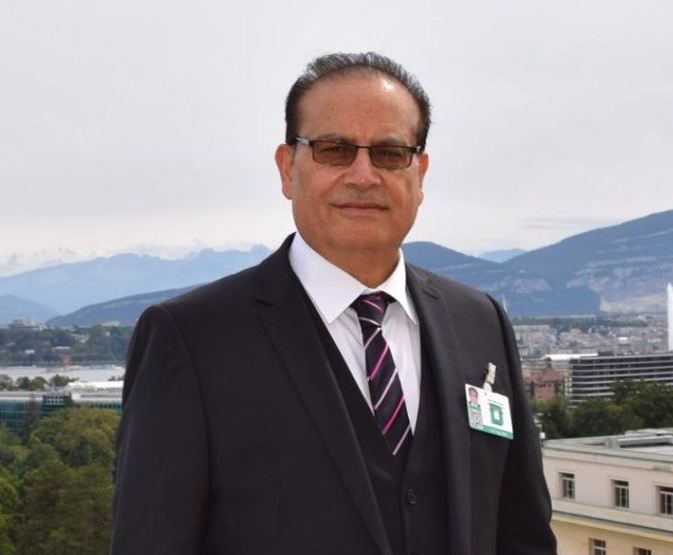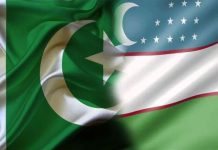Qamar Bashir
Donald Trump is focusing on predominantly white voters, wealthy corporations, and influential lobbies, especially pro-Israel and Jewish groups. His campaign often features exaggerated claims that frequently lack supporting evidence or logical reasoning. For instance, he has claimed he could end the Russia-Ukraine war in a day, warned that Israel would be annihilated if he’s not re-elected, and made offensive remarks about immigrants, suggesting they consume pets of white Americans.
Kamala Harris, on the other hand, has adopted a more inclusive strategy, aiming to appeal to a broader range of voters. She maintains a compassionate stance toward immigrants while ensuring that white voters are not alienated. Harris has been clear in her support for Ukraine against Russia and seeks to appeal to middle-class families by advocating for social benefits, funded by taxing the wealthy and high-profit corporations. On the Israel-Palestine conflict, Harris supports Israel but emphasizes human rights and the pursuit of a two-state solution to achieve lasting peace.
Among all the key issues, the Israel-Palestine conflict stands out as one of the most critical, with significant implications for peace and stability in the Middle East and beyond.
Donald Trump is strategically leveraging this position to appeal to influential pro-Israel and Jewish lobbying groups in the U.S., aiming to tap into their substantial financial resources and political support. His approach reflects a clear intention to benefit from the deep pockets and influence of these lobbies in advancing his campaign objectives.
His success is proven as many pro-Israel and Jewish lobbying groups and individuals are supporting Donald Trump due to his impressive pro Israeli record in his previous administrations. He recognized Jerusalem as Israel’s capital and moved the U.S. embassy there, acknowledging Israeli sovereignty over the Golan Heights, and facilitating the Abraham Accords, which normalized Israel’s relations with several Arab countries. Trump’s administration also cut aid to the Palestinian Authority and proposed a peace plan favoring Israeli interests. Zionist Organization of America and Sheldon Adelson, strongly backed Trump, seeing his policies as significantly strengthening the U.S.-Israel alliance.
Based upon Trump’s record, in the 2024 election cycle, pro-Israel and Jewish donors have been making notable contributions to Republican candidates, including support for Donald Trump. Major donors such as Jeffrey Yass, co-founder of Susquehanna International Group, have donated over $13 million primarily to Republican causes. Bernard Marcus, co-founder of Home Depot and a longtime Trump supporter, has historically contributed significantly, with about $9.7 million donated to Republican campaigns overall in recent cycles. Additionally, other Jewish donors have supported various GOP contenders, including significant donations to Ron DeSantis and Nikki Haley, indicating that pro-Israel contributions continue to be a substantial force within the Republican landscape.
To validate his pro Israeli stand, Donald Trump has been critical of President Biden for not being firm enough in supporting Israel and has indicated that he would provide Israel with more freedom in military actions, refrain from pushing for ceasefires, and maintain a hard stance against groups like Hamas. His advisors suggest that Trump would support Israel winning any conflict decisively without U.S. micromanagement, and he claims that his previous pressure on Iran had limited funding to groups like Hamas and Hezbollah.
Donald Trump’s re-election will potentially escalate tensions and will increase the risk of broader regional conflicts starting with escalating tension particularly with Iran. Trump has historically taken a hardline stance against Iran, withdrawing from the 2015 Iran Nuclear Deal and imposing severe sanctions. If he resumes or intensifies this approach, it could provoke a military response from Iran or encourage Iran to expand its influence through proxies like Hezbollah in Lebanon, the Houthis in Yemen, and militias in Iraq, escalating the risk of full-fledged war.
Trump’s election will embolden Israel to take more aggressive measures against Hamas in Gaza, Hezbollah in Lebanon, or even Iranian targets in Syria and Iraq. This could trigger retaliatory attacks, dragging Lebanon, Iraq, and potentially even Egypt into a broader regional conflict.
Trump’s reelection could fuel extremism and militancy across the region spiraling into a broader regional war, sucking the larger powers like Russia, Iran, and China into the war theater. The emerging scenario could be extremely dangerous and destabilizing, with far-reaching implications for regional and global peace.
Russia has a significant military presence in Syria and views itself as a power broker in the Middle East. If Israel or the U.S. attacks Iranian assets in Syria, Russia might feel compelled to intervene to protect its interests. If Russia directly supports Iran or Syrian forces it could lead to a dangerous standoff between Russian and American forces, raising the risk of direct military confrontation between two nuclear powers.
An escalating conflict could threaten China’s energy security, prompting it to take a more active role, either diplomatically or through indirect support for Iran. While China is unlikely to engage militarily, it might provide Iran with economic and political support, forming a counterbalance to the U.S.-Israeli actions. This could lead to a realignment of power blocs in the Middle East, with China and Russia forming a more united front against U.S. influence.
A conflict involving Iran, which controls the Strait of Hormuz, a critical choke point for global oil supplies, would disrupt oil shipments, causing a dramatic spike in global oil prices. This would lead to economic instability, especially in developing countries that are heavily dependent on oil imports. As energy prices rise and supply chains are disrupted, the global economy could plunge into a recession. Developing countries would be hit hardest, facing inflation, food shortages, and increased poverty rates.
If the U.S. is drawn into a direct military confrontation with Iran and Russia and China intervenes, there is a real risk of a larger, more devastating conflict involving the world’s major powers. A full-scale regional war could displace millions, overwhelm humanitarian agencies, and create a refugee crisis on a scale not seen since World War II, affecting Europe, Asia, and beyond. This scenario would have devastating consequences for regional peace, economic stability, and global security, risking not just a regional war but potentially drawing the world into a broader conflict reminiscent of past world wars.
Qamar Bashir
Former Press Secretary to the President
Former Press Minister to the Embassy of Pakistan to France
Former MD, SRBC, CEO, ATV












